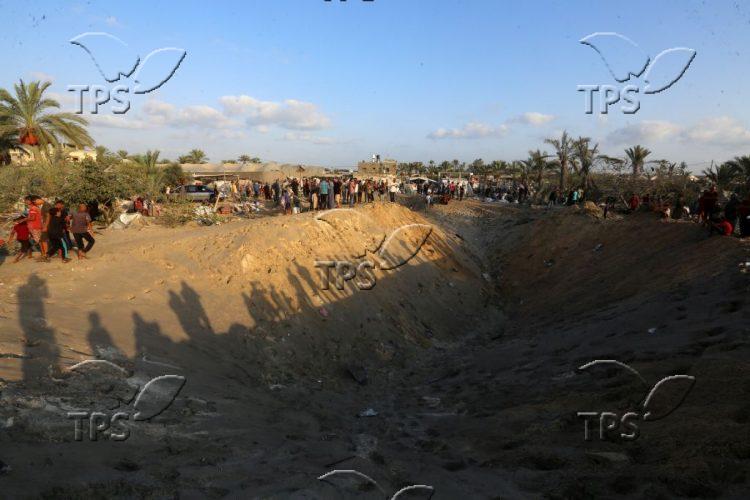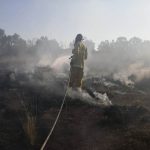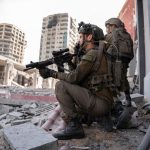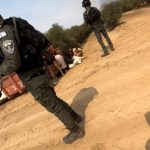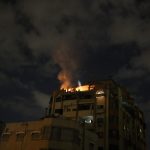Hamas Exploits Humanitarian Zones as Israel Targets Senior Leaders
Jerusalem, 11 September, 2024 (TPS-IL) -- As Hamas continues to exploit Gaza’s humanitarian infrastructure, Palestinian sources in the Strip and experts noted that several incidents on Monday highlighted the challenges Israel faces in avoiding harming civilians.
One incident involved an aid convoy hijacked by Hamas. Another incident involved a UN convoy that was detained by soldiers who suspected terrorists were hiding in the vehicles. Hours later, Israel struck a Hamas command and control center embedded in a humanitarian zone.
“Today, there was also a convoy carrying fuel on Salah al-Din Street, and the army stopped it on the way to northern Gaza,” a Palestinian source from the Deir al-Balah refugee camp told The Press Service of Israel on Monday night. “Also, tonight Hamas seized a truck carrying meat for the people in Deir al-Balah, again.”
The UN convoy was making its way from southern Gaza to northern Gaza when it was stopped by soldiers. It is believed that several suspected terrorists were removed from the vehicles, interrogated and released, though they were not permitted to cross into northern Gaza with the rest of the convoy.
Hours later, Israeli aircraft hit a Hamas command center in the Mawasi humanitarian zone in Khan Yunis. The Israel Defense Forces said it targeted Samer Ismail Khader Abu Daqqa, the head of Hamas’s aerial forces, Osama Tabash, the head of surveillance and targets in Hamas’s intelligence division, and Ayman Mabouh, another senior Hamas officer. Hamas claimed 40 people were killed and 60 injured, which has not been independently verified and which Israel disputed.
“Hamas terrorists use guerrilla tactics, exploiting humanitarian issues and ensuring it isn’t a fair fight,” Col. (Res.) Hezi Nechama, told TPS-IL. Nechama is a senior officer and former Brigade Commander.
“For instance, Israeli forces attempt to reduce civilian casualties by warning the population before military operations, but Hamas exploits this, blending into the population before the IDF arrives,” he explained.
Hamas has also exploited humanitarian infrastructure by firing rockets from within humanitarian zones. Most notable among the Hamas figures hiding in these zones was Mohammed Deif was inside a compound within the Mawasi zone when he was killed in a July airstrike.
Controlling Aid Distribution
Having lost control over the Philadelphi corridor and the Egyptian border, stealing humanitarian aid is a critical lifeline for Hamas.
“Hamas controls everything there, including all the humanitarian aid. Those who dare to criticize Hamas face brutal consequences. If anyone in Gaza says anything against Hamas, they show up at his doorstep the same day and break his bones,” Nechama told TPS-IL.
TPS-IL recently reported that Hamas openly collaborates with criminal gangs to steal — and then sell at inflated prices — food and medicine. In some instances, Hamas imposes taxes on aid deliveries, telling drivers they will confiscate half of the delivery if they don’t pay.
The aid distribution crisis has reached a point where Israel is poised to establish a military government.
Nechama, one of the leaders of the Commanders and Combatants in Reserves Forum, advocates a plan to evacuate all civilians from northern Gaza, then force the remaining terrorists to capitulate by cutting off all aid.
“The role of the IDF is to defeat the enemy and force them to release the hostages. The aim is to completely surround Hamas, cut off food and water supplies, and force the militants into making critical mistakes that will allow the IDF to systematically destroy their infrastructure,” said Nechama.
At least 1,200 people were killed, and 252 Israelis and foreigners were taken hostage in Hamas’s attacks on Israeli communities near the Gaza border on October 7. Of the 97 remaining hostages, more than 30 have been declared dead. Hamas has also been holding captive two Israeli civilians since 2014 and 2015, and the bodies of two soldiers killed in 2014.

